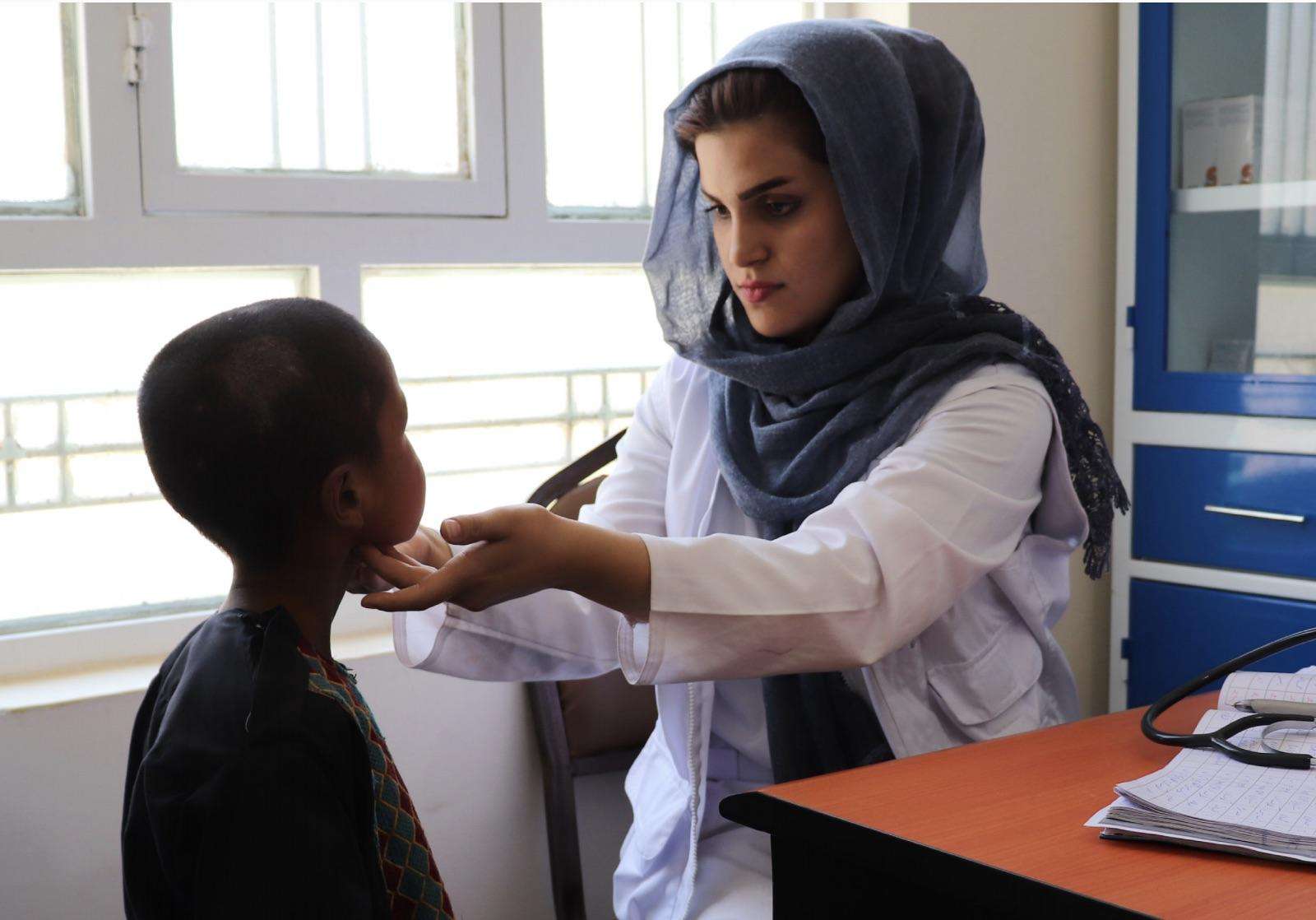When the number of severe cases of COVID-19 began to rise late last year, Doctors Without Borders/Médecins Sans Frontières (MSF) reopened its COVID-19 treatment center in Gazer Ga, in Herat province, Afghanistan. The facility, which supports the Ministry of Public Health’s COVID-19 referral structure in Shaidayee hospital, resumed activities on December 2, 2020. Two-and-a-half months later, the average number of new hospital admissions for severe COVID-19 has dropped to around four patients a day.
The treatment center—originally open from June 28 to the end of September to support the response to the pandemic’s first wave—has 20 beds, including a 10-bed unit for patients who need oxygen but do not require intensive care. Its capacity can be increased to 32 or even 48 beds depending on the evolution of the pandemic.
“MSF is continuing to follow the COVID-19 situation closely in Herat with the Ministry of Public Health and other partners in order to adapt our activity to the needs,” said MSF’s head COVID-19 nurse in the Melusi Mabhena region.
The first case of COVID-19 in Afghanistan was recorded in late February 2020 in Herat. The virus then quickly spread to the whole province and neighboring ones in March as tens of thousands of migrant workers passed through Herat on their way back from Iran. According to official data from the Ministry of Public Health, Herat remains the second-most affected province in Afghanistan after Kabul, with more than 9,143 confirmed cases and around 424 reported deaths.
Since reopening the Gazer Ga treatment center in December, MSF has adapted oxygen therapy management—especially for patients suffering from severe cases of COVID-19. The team has added capacity for nasal high-flow oxygen and continuous airway positive pressure therapy (commonly known as CPAP). Following the onset of winter, the number of admissions for patients requiring oxygen has thankfully remained stable here.
From December 2 to January 31, 258 patients were admitted to the Gazer Ga facility. Of these, 246 have been discharged, 19 of whom were referred to other facilities. Seven died.
Struggling to access health care
The COVID-19 pandemic is pushing many who were already vulnerable to the brink. Most people in Herat city can’t afford health care in private facilities. “I couldn’t have afforded the private cost of the treatment,” said Abdul Qader, a COVID-19 patient receiving free care at MSF’s Gazer Ga treatment center. “It is winter now, so there is less work. Sometimes my sons find laboring jobs, but not always. We get through the day somehow. But with all this [treatment and hospitalization] we have lost a lot of money. My sons have had to borrow.”
Nearby, at a clinic for internally displaced people on the outskirts of the city, MSF teams have recently started providing rapid diagnostic tests for patients from the Kahdestan, Shaidayee, and Sharak-e-Sabz areas. We’ve also been running triage and screening activities in Herat regional hospital since April 2020. In the last few weeks, the number of consultations has reached an average of 74 patients per day, most of whom are encouraged to self-isolate at home. The MSF team then follows up with phone calls to monitor people's health. If an individual's condition is not improving, they are advised to return to the regional hospital.
In the last four weeks, 132 patients suffering from severe COVID-19 have been referred to MSF’s Gazer Ga treatment center and 34 have been sent to another treatment center in Shaidayee run by Ministry of Public Health and Agency for Assistance and Development.
Educating the public on COVID-19 symptoms
Although the pandemic first reached Herat province one year ago, many people in the area still do not know the signs of COVID-19. Even patients who were treated for COVID-19 by MSF originally thought they had the flu, and most had very limited knowledge about how to keep themselves and others safe from the spread of the virus.
In response, our teams are carrying out health promotion activities working through the triage unit of Herat regional hospital, the Gazer Ga COVID-19 treatment center, and the clinic for internally displaced people.
-------------------------------------
Since the start of the COVID-19 pandemic in Afghanistan, MSF has been implementing infection prevention and control measures in its existing programs and supporting the Ministry of Public Health in the pandemic response. In Boost hospital in Lashkar Gah, we continue to refer patients with suspected cases of COVID-19 to Malika Suraya, the main dedicated COVID-19 facility in Helmand province. In Kandahar, MSF supports the designated inpatient isolation facilities for the treatment of people suffering from drug-resistant tuberculosis who have contracted COVID-19.




